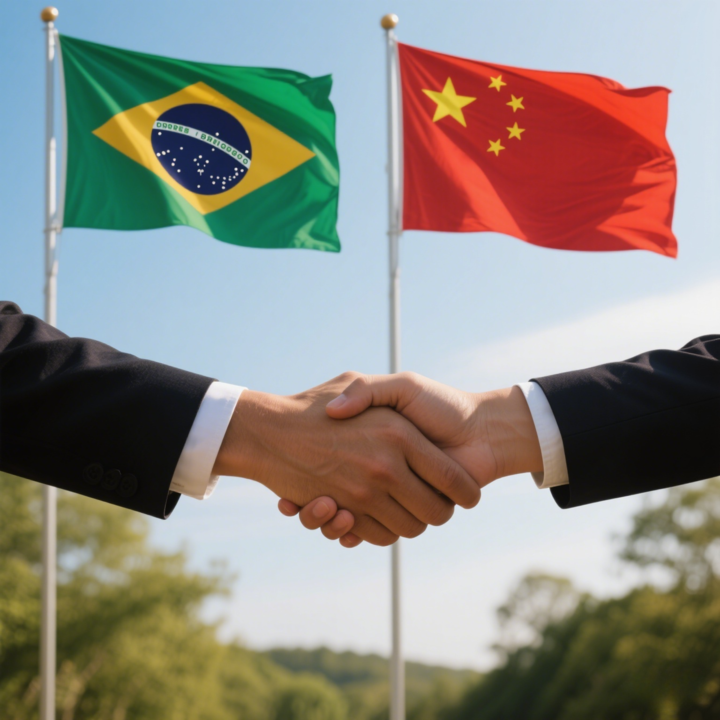Author: Prof. Engr. Zamir Ahmed Awan, Founding Chair GSRRA, Sinologist, Diplomat, Editor, Analyst, Advisor, Consultant, Researcher at Global South Economic and Trade Cooperation Research Center, and Non-Resident Fellow of CCG. (E-mail: awanzamir@yahoo.com).
In recent years, an encouraging trend has emerged in the economic relationship between Pakistan and China — a sharp rise in Pakistan’s sesame seed exports to the Chinese market. This surge is not only a testament to the growing quality and recognition of Pakistani agricultural products but also a meaningful step toward narrowing the persistent trade gap between the two neighbors.
Cultivation and Uniqueness of Pakistani Sesame Seeds
Sesame (Sesamum indicum) is one of the oldest oilseed crops known to humanity. In Pakistan, it is traditionally grown in the summer season, mainly in the provinces of Punjab and Sindh, and to a lesser extent in parts of Balochistan and Khyber Pakhtunkhwa. Key sesame-growing districts include Bhakkar, Layyah, Dera Ghazi Khan, Rajanpur, Sanghar, and Tharparkar. These regions offer the right combination of climate, soil, and sunlight for producing high-quality sesame seeds.
What sets Pakistani sesame seeds apart is their distinct variety, texture, and oil content. The seeds are known for their rich, nutty flavor and natural aroma — attributes that are highly appreciated in China, where taste and freshness play a vital role in food preparation. Additionally, Pakistan’s sesame harvesting season precedes China’s Spring Festival — a time of heightened demand for sesame-based foods — positioning Pakistan as a reliable supplier during a critical window.
Rising Demand in China and Culinary Importance
In China, sesame seeds are deeply embedded in daily life and traditional cuisine. Whether sprinkled on steamed buns, mixed into sauces, or pressed into fragrant sesame oil, these tiny seeds are a staple in millions of households. From the famous sesame paste used in hot pots to the delightful sesame balls (Jian Dui) enjoyed during Lunar New Year, sesame adds both flavor and cultural meaning to Chinese meals.
Beyond taste, sesame is highly valued in traditional Chinese medicine and wellness practices. It is believed to nourish the liver and kidneys, improve digestion, strengthen hair, and enhance skin health. Rich in fiber, protein, calcium, magnesium, and antioxidants, sesame seeds support overall health and well-being — attributes that resonate strongly in today’s health-conscious society.
This combination of cultural importance, nutritional value, and culinary versatility drives China's robust demand for sesame seeds — and presents Pakistan with a golden opportunity.
A Path Toward Balanced Trade
Pakistan's increasing sesame exports to China come at a crucial time. The trade volume between the two countries has grown substantially under the framework of the China-Pakistan Economic Corridor (CPEC). However, the trade balance remains tilted in China’s favor. Pakistani exports to China are relatively limited in volume and diversity compared to imports, contributing to a trade deficit that Pakistan has long sought to reduce.
In this context, sesame seeds have emerged as a strategic commodity. According to official trade data, Pakistan’s sesame exports to China crossed the $100 million mark recently, showing exponential growth. This rise not only helps Pakistan earn valuable foreign exchange but also strengthens agricultural linkages and builds confidence among farmers and exporters.
China has welcomed Pakistani sesame due to its superior quality and timely availability. Moreover, the zero-tariff access under the second phase of the China-Pakistan Free Trade Agreement (CPFTA) has further facilitated trade flows. As both countries aim to promote mutual prosperity, increasing agricultural exports like sesame can serve as a catalyst for a more balanced and inclusive trading partnership.
Empowering Farmers and Strengthening Rural Economy
The sesame export boom is also a success story for Pakistan’s rural economy. Unlike many other cash crops, sesame requires relatively low inputs and is tolerant to drought — making it ideal for small-scale farmers in rain-fed regions. The growing international demand encourages farmers to shift from traditional crops to more profitable sesame farming, leading to improved livelihoods, enhanced crop diversity, and food security.
Government institutions, exporters, and trade facilitation bodies must now work in tandem to build supply chains, improve post-harvest processing, and ensure compliance with international quality standards. Investments in value addition, such as sesame oil extraction and packaging for niche markets, can further enhance earnings and create employment opportunities.
Future Prospects and a Way Forward
Looking ahead, the sesame industry in Pakistan holds tremendous potential. With proper support, Pakistan could become one of the top global exporters of sesame seeds. This requires a strategic approach: encouraging public-private collaboration, upgrading agricultural research, ensuring access to certified seeds, training farmers in best practices, and expanding market access through trade diplomacy.
China, with its growing consumer market and strong economic partnership with Pakistan, can play a vital role in this journey. Promoting joint ventures in agri-processing, seed development, and logistics can deepen cooperation and yield mutual benefits. Platforms like the China International Import Expo (CIIE) and bilateral agricultural forums can be used to showcase Pakistan’s sesame industry and attract long-term investment.
Furthermore, sesame seeds represent a model for how other Pakistani products — from mangoes to seafood and Himalayan salt — can find a place in Chinese kitchens and wellness routines. This is not only about economic gains but also about cultural exchange and sustainable development.
Conclusion
Sesame seeds, though small in size, carry immense potential. They offer a natural and meaningful pathway for Pakistan to deepen its trade relations with China while uplifting rural communities and enhancing export diversity. As the Chinese people continue to embrace the unique quality of Pakistani sesame, and as the two governments work together to promote inclusive trade, this humble seed may well become a symbol of growth, cooperation, and shared prosperity between Pakistan and China.
Let us cultivate this opportunity wisely and turn it into a lasting harvest of friendship and economic success.
(ASIA PACIFIC DAILY)
